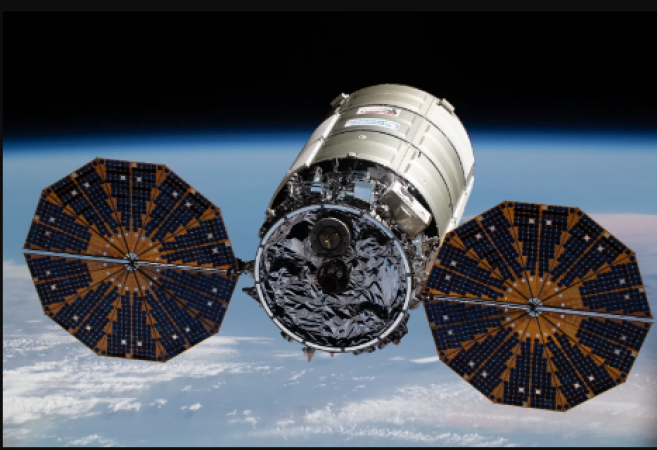
Washington: Rather than re-bid on three existing contracts, NASA is proposing to extend them through the anticipated closure of the International Space Station in 2030.
NASA announced on March 2 the expansion of its Commercial Resupply Service (CRS) 2 contracts with Northrop Grumman, Sierra Space and SpaceX under Sole Source Procurement notices.
The missions covered by those extensions will take place between January 2027 and December 2030. By 2030, NASA plans to end the ISS program and switch to commercial space stations, as previously stated.
Also Read: In search of extraterrestrial life top scientists collaborate
The reason why NASA decided to renew the contracts rather than hold a new competition was not explained in the notice. Companies that want to provide information about their capabilities to NASA so that NASA can decide whether to hold an open competition or issue an extension until March 17 to do so. After this NASA will take a decision.
As a replacement for the initial CRS contracts awarded to Orbital Sciences (now a part of Northrop) and SpaceX, NASA awarded CRS-2 contracts to those three businesses in 2016 to provide cargo delivery. Under the terms of the contract, each company was promised at least six missions, with NASA having the option of ordering more.
Also Read: Women in Technology Day Honored by Cigniti Technologies
NASA announced in March 2022 that it had placed orders for six more missions to Northrop and SpaceX, bringing the total number of missions ordered to 14 from Northrop and 15 from SpaceX.
Although the company claims it will fly at least seven missions under its CRS-2 contract, the first of which is scheduled for the second Vulcan Centaur launch later this year, NASA has only flown three Dream Chaser missions from Sierra Space. officially ordered.
When asked about the cost of those additional missions, NASA withheld the information, claiming that it was "contractor confidential data". So far, NASA has given about $2.2 billion to Northrop, $1.1 billion to Sierra Space and $2.35 billion to SpaceX, according to the procurement database.
Given the short term of the contract, it is uncertain whether any companies would be eager to submit bids for the new CRS competition. In the initial CRS-2 competition, Boeing submitted a CST-100 Starliner Commercial Crew Vehicle.
But NASA didn't take this into account when evaluating the proposals. Lockheed Martin also submitted a CRS-2 proposal, but NASA rejected it in the first evaluation phase because it was not in the "competitive range" for the program.
The next cargo mission to the ISS is being planned by Northrop and SpaceX for the coming weeks. At a briefing on March 2 after the launch of the Crew-6 commercial crew mission
NASA ISS operations integration manager Dina Contella said NASA was planning a mid-March launch of the following Cargo Dragon mission, SPX-27.
However, this date is dependent on the departure of the Crew-5 Crew Dragon spacecraft from the station, which will free up the docking port to be used by Cargo Dragon.
He said that would be followed by the departure of the NG-18 Cygnus spacecraft, which has been at the station since November, and the launch of the NG-19 Cygnus, which is expected in April.
Also Read: Android users will soon be able to mute unknown callers thanks to WhatsApp
The last flight of the Antares rocket will be the NG-19 launch as Northrop and Firefly Aerospace develop a new model without the Russian engine and Ukrainian-built first stage.
Northrop intends to launch three Cygnus spacecraft on SpaceX Falcon 9 rockets, while that new Antares vehicle is still under development.